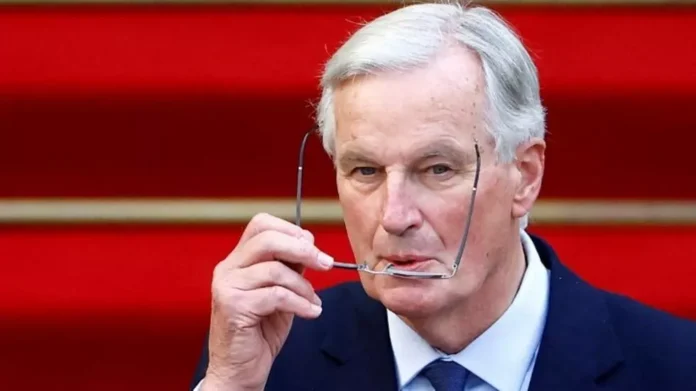
PARIS, September 7, 2024 – Veteran politician Michel Barnier, a seasoned member of France’s conservative Republicans (LR) party, has been appointed as Prime Minister by President Emmanuel Macron.
The appointment follows two months of political deadlock after legislative elections left Macron’s Renaissance party without an outright majority in the National Assembly.
Barnier, 73, brings with him over five decades of political experience, having held multiple ministerial portfolios, including finance, agriculture, and foreign affairs.
A respected figure within both French and European politics, Barnier’s appointment is seen as a stabilizing force for Macron’s government as it grapples with ongoing economic challenges and public discontent over recent reforms.
A Veteran of French and European Politics
Born in 1951, Barnier’s political career began in the 1970s when he was elected to the French National Assembly. Over the years, he held several ministerial positions under different governments, earning a reputation as a capable and pragmatic leader.
In addition to his domestic roles, Barnier served as an EU commissioner twice, first overseeing regional policy and later managing the internal market and financial services.
Perhaps his most prominent role on the European stage was as the European Union’s chief Brexit negotiator.
Barnier played a key part in securing the December 2020 agreement that formalized the UK’s departure from the EU. His deep understanding of European institutions has earned him respect across the continent.
European Commission President Ursula von der Leyen praised Barnier’s appointment, stating on social media that he “has the interests of Europe and France at heart, as his long experience demonstrates.”
Italian Premier Giorgia Meloni echoed this sentiment, calling Barnier’s political experience “an added value” for European cooperation.
Continuity in Macron’s Pro-Business Agenda
While Barnier has a long history of working within the EU, his appointment is unlikely to signal any significant departure from Macron’s pro-business reforms.
These reforms, which have included lowering corporate taxes, loosening labor laws, and implementing a controversial pension overhaul, have faced considerable opposition in France but remain central to Macron’s economic strategy.
Barnier is expected to maintain continuity in these policies, particularly as France faces the challenge of reducing its public deficit, which currently stands at over 5% of GDP.
Under EU rules, member states are expected to keep their deficits below 3% of GDP, and Barnier’s familiarity with Brussels’ fiscal regulations will be crucial in managing this task.
Despite his alignment with Macron’s economic vision, Barnier’s appointment could help ease tensions within the Republican party and among conservative voters.
His background in traditional French conservatism and his European credentials position him as a bridge-builder in a polarized political landscape.
Challenges Ahead
Barnier’s primary challenge will be navigating the ongoing public discontent surrounding Macron’s pension reform, which raised the legal retirement age from 62 to 64. The reform sparked mass protests and strikes across France, and opposition remains fierce.
Additionally, Barnier will need to manage a fragmented National Assembly, where Macron’s Renaissance party holds a relative majority but lacks the numbers to easily pass legislation.
His political acumen and negotiation skills, honed over years in both French and European politics, will be put to the test as he seeks to build consensus and push forward Macron’s agenda.
As France’s new prime minister, Michel Barnier’s steady hand and extensive experience are expected to bring much-needed stability to the government, but the road ahead remains challenging, with economic reforms and political divisions continuing to shape the nation’s future.